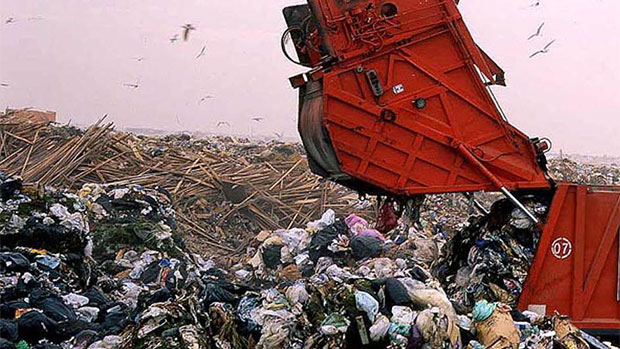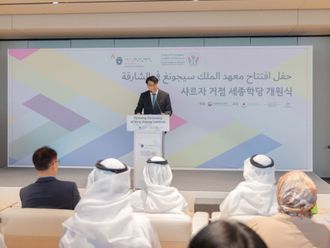
Dubai: Dubai will impose a charge on waste by the first half of next year, a senior official said on Monday.
Commercial and industrial waste will be charged per tonne, said Abdul Majeed Saifaie, Director of Dubai Municipality’s waste management department.
However, Saifaie declined to disclose the tariff rate during the Waste Management Middle East Forum in Dubai.
Waste from other emirates charging a tariff was finding its way into Dubai, which has no tariff, filling up Dubai landfills, he said.
As a result, the amount of waste piling up in Dubai had almost doubled, from 6,000 tonnes in 2008 to 11,500 tonnes in 2011.
Today, the rate is back down to the “normal” 7,000 tonnes per year, the director said.
Dubai only charges a gate fee of Dh10 per dump truck at landfills. In neighbouring Abu Dhabi, the tariff is Dh225 per tonne of waste generated by commercial and industrial companies.
Saifaie said the planned Dubai tariff will “push the private sector” to reconsider how much waste it generates. In the first half of this year, 39 per cent of all waste “came from the commercial sector, like hotels and malls”.
Industrial, construction and domestic waste made up the rest. In Dubai, where 2.2 million people live, the daily garbage output is 2.3kg per person on average, he added.
That is almost double the rate in the Indian city of Chennai — home to four times as many people. It is also almost twice the UK rate.
Saifaie said that UAE authorities are planning a “unified” tariff regime, which could “stop waste moving between emirates”.
“We’re not going to profit from the tariff, it’s the cost of handling the waste. We’re a public service, but there are overhead costs. This income will encourage us to invest in recycling or other waste management facilities.”
The move is part of a planned national waste management framework to standardise waste classification and other considerations across all seven emirates.
The coordination in tariffs and waste management is taking place under the “mother umbrella” of the UAE Ministry of Environment and Water, the director said. Also involved are the municipalities of all emirates, and Abu Dhabi’s Centre of Waste Management and Environment Agency.
Saifaie said what is classified as “highly dangerous” waste in one emirate may be only “dangerous” in another emirate, affecting how it should be handled.
Dubai already has a hazardous liquid waste facility and recently launched a tender to boost capacity in a new phase of the programme. “In the future, we may take [hazardous waste] from other emirates, we might consider that,” he added.
Saifaie said Dubai is also “going into a new waste-to-energy facility. We will sign something by the end of 2015. It will be a Build-Operate-Transfer contract.
“We want to encourage the private sector. All of waste management is outsourced… We [the municipality] service 30 per cent of the city, the rest we leave to the private sector.”












